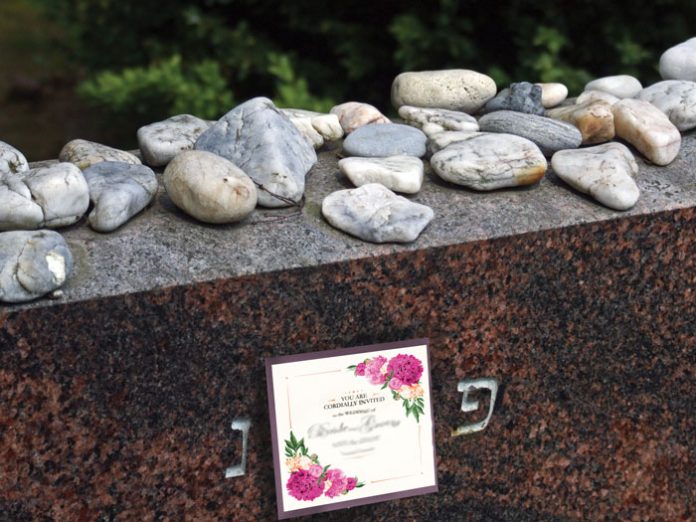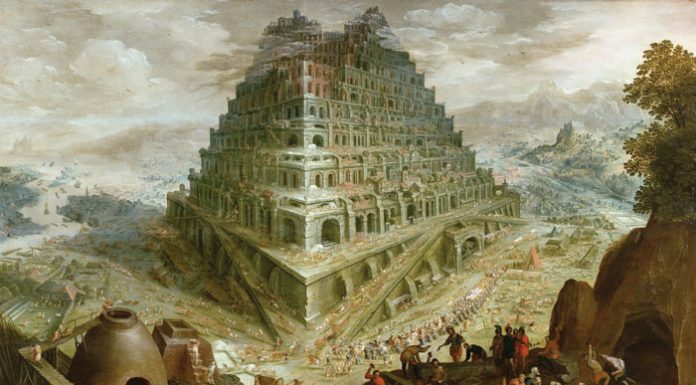I was getting married on Wednesday evening, and by Monday morning, all the errands on my to-do list had been done. Aside from making a big grocery order, the day loomed empty and long. I wasn’t going in to work; my marriage leave was already in effect. The only unspoken appointment I had was a visit to the cemetery to invite my father, a”h, to my wedding.
The trip wasn’t something we discussed much. My mother casually mentioned that the weather would be decent on Monday, so we should probably go “tzim feld.” No heavy emotions, no teary-eyed drama. My father had passed away years before, when I was four, on his way up to the mountains, courtesy of a drunken driver. Our grief must have been unbearable, except that I don’t really remember any of it. No post-traumatic stress-disorder, no yearning for normalcy, nothing out of the ordinary categorized my childhood. My (amazing, super, endlessly strong!) mother had given us her all, and the community rallied around us to provide support. “It takes a village” was never more true than with my family, and indeed, the village did its part. Even being recipients of chesed was something that was normal to me, and it didn’t make me feel uncomfortable. I felt as if I’d been born into this status quo, and accepted it easily.
Here and there, whenever the yahrtzeit or other emotional events took place, I would say the requisite Tehillim for my father’s neshamah and wonder what my life would have looked like had he lived. But other than that, life went on.
Now, however, I was feeling queasy about the visit. I was embarking on the next stage of my life. I had been blessed to find a wonderful chasan, and imagined a pleasant journey in the land of marriage. The last thing I needed to mark this turning point was traces of tragedy of a life cut short. I planned to join my mother on the trip to the cemetery out of obligation and daughterly duty, albeit reluctantly.
We didn’t talk much on the way. My mother was (thankfully!) concentrating on the drive; she hated the highway, the other drivers seemed to be going too fast, where was the exit, and I wondered if she too was fulfilling a duty or filling a need. When we arrived, we headed straight to the slab of cement I had stared at too many boring times in my young life, and started our prayers.
It was precisely at that moment that my heart, which had borne the years of fatherlessness stoically, suddenly broke. I lost my self-control, and shamelessly let the tears fall. I was overtaken by a deluge of emotion, and my mother’s life, as well as my own, passed before my eyes. The tragedy of losing a husband at such a young stage. The horror, the shock, the rebuilding. The strength she must have possessed; the loss I subconsciously must have felt. The sorrow of my older siblings, the discomfort of Kaddish, the years of Yizkor, the yahrtzeit candles and loneliness all flooded my mind. Yomim Tovim and Havdalah and my oldest brother’s bar mitzvah, scenes of restrained emotion and confusing turmoil. Erev Yom Kippur when my grandfather would bentch us and blow his nose forcefully, to pretend that he wasn’t crying. Pesach sedarim, Chumash parties, siyums and all the other fatherless moments we had endured. Time seemed to stand still, and I couldn’t stop crying. The bottomless well made no show of running dry. I wept and wept and finally felt the enormity of it all. I davened and hoped for a better life for myself, I begged for my mother to have koach, and I prayed for my grandparents who had never recuperated from the staggering loss of their bechor.
When I had run myself ragged from crying I stopped with a shuddering, satisfying sigh. A feeling of lightness that I had never felt before descended on me. But I wasn’t done yet. I had one more request.





















